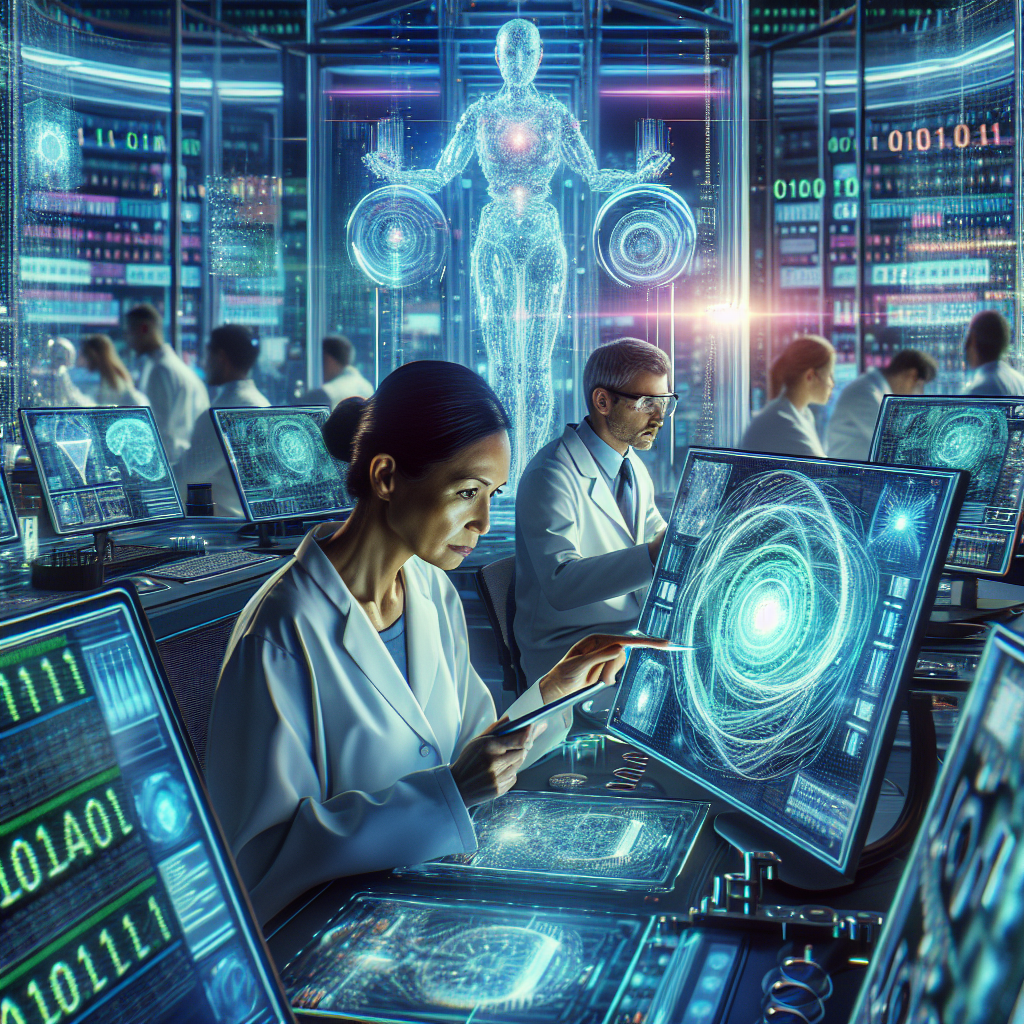“`html
Innovation Explored: AI in Scientific Discovery
Welcome to our exploration of Artificial Intelligence (AI) in the realm of scientific discovery! You might be wondering how AI is revolutionizing the world of science and what this means for future discoveries. Let’s dive in!
What is AI doing in scientific research?
AI is essentially empowering scientists by automating and accelerating their research processes. Imagine having a supercomputer that can analyze massive datasets much faster than any human could. That’s exactly what AI brings to the table. For instance, in fields like genomics and climate science, AI helps identify patterns and make predictions that were previously thought impossible.
Can AI replace scientists?
No, AI cannot replace scientists. Think of AI as a tool—a very smart tool—but it still needs human oversight, intuition, and creative thinking to guide it. AI can handle mundane tasks such as data sorting, allowing scientists to focus on groundbreaking research and strategic thinking.
How does AI support scientific innovation?
- Data Analysis: AI can sift through vast amounts of data to find patterns and correlations that humans might miss, leading to new insights and discoveries.
- Predictive Models: By learning from existing data, AI can forecast future trends, such as the spread of diseases or climate changes.
- Automation of Tasks: Experiments that involve repetitive tasks can be automated, increasing efficiency and reducing the possibility of human error.
What are some real-world applications of AI in science?
AI is already making waves in various scientific domains:
- Healthcare: AI is used to identify disease patterns and assist in diagnosing conditions with more accuracy.
- Astronomy: By analyzing astronomical data, AI helps in discovering new celestial bodies and understanding cosmic events.
- Environmental Science: AI helps in predicting natural disasters and understanding climate change impacts.
What does the future look like for AI in science?
The future is bright and promising. As AI technology advances, its integration in science will likely lead to accelerated discovery processes and more profound insights into complex scientific questions. Experts anticipate breakthroughs in personal medicine, quantum computing, and environmental sustainability.
So, whether you’re a budding scientist or just someone curious about innovations, AI in scientific discovery offers a fascinating glimpse into the future of research and innovation.
Feel free to drop any questions or thoughts you might have. We love to hear your opinions!
“`
